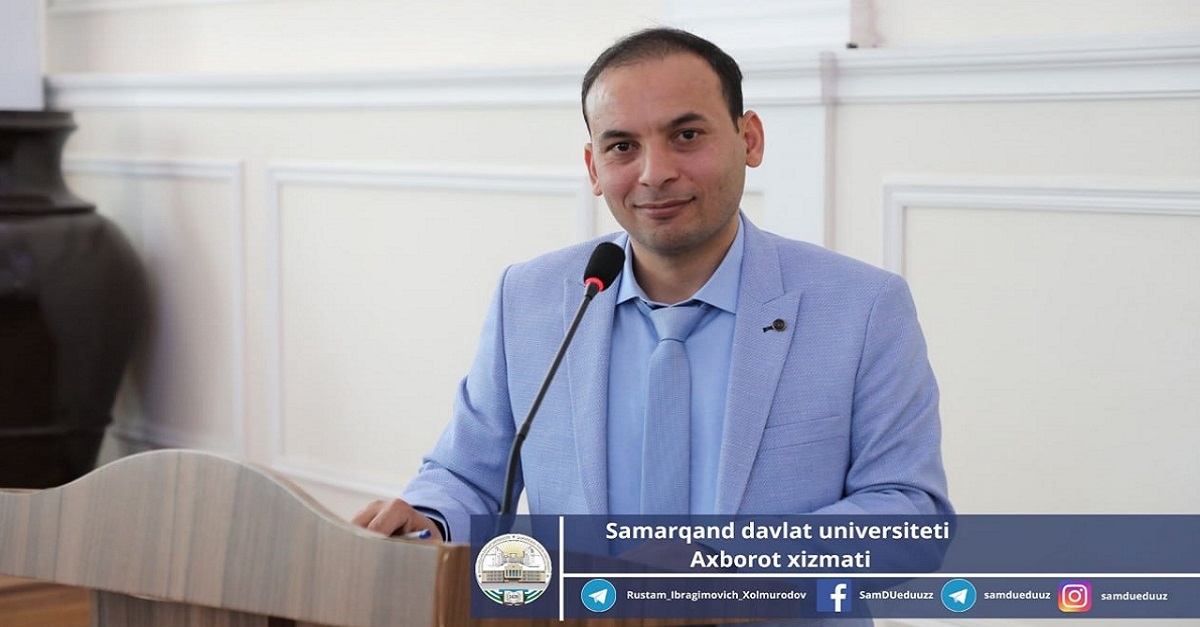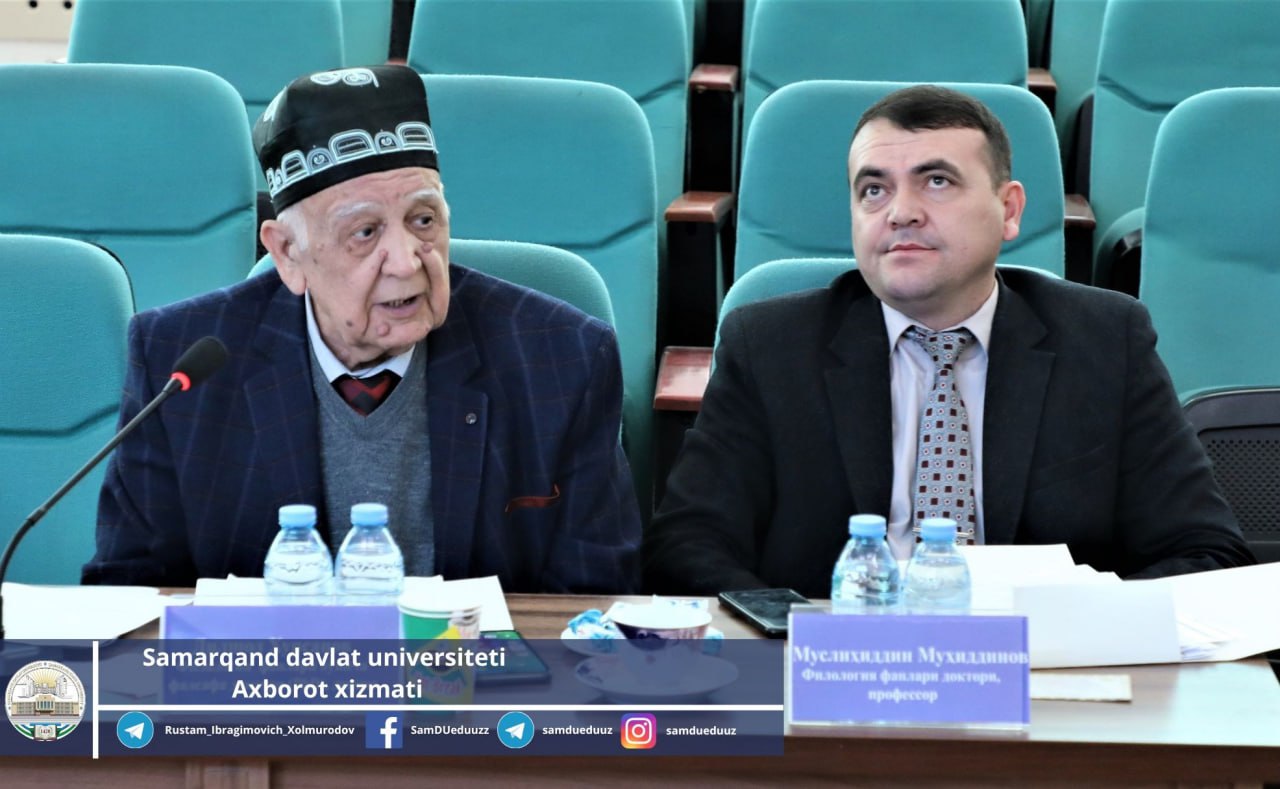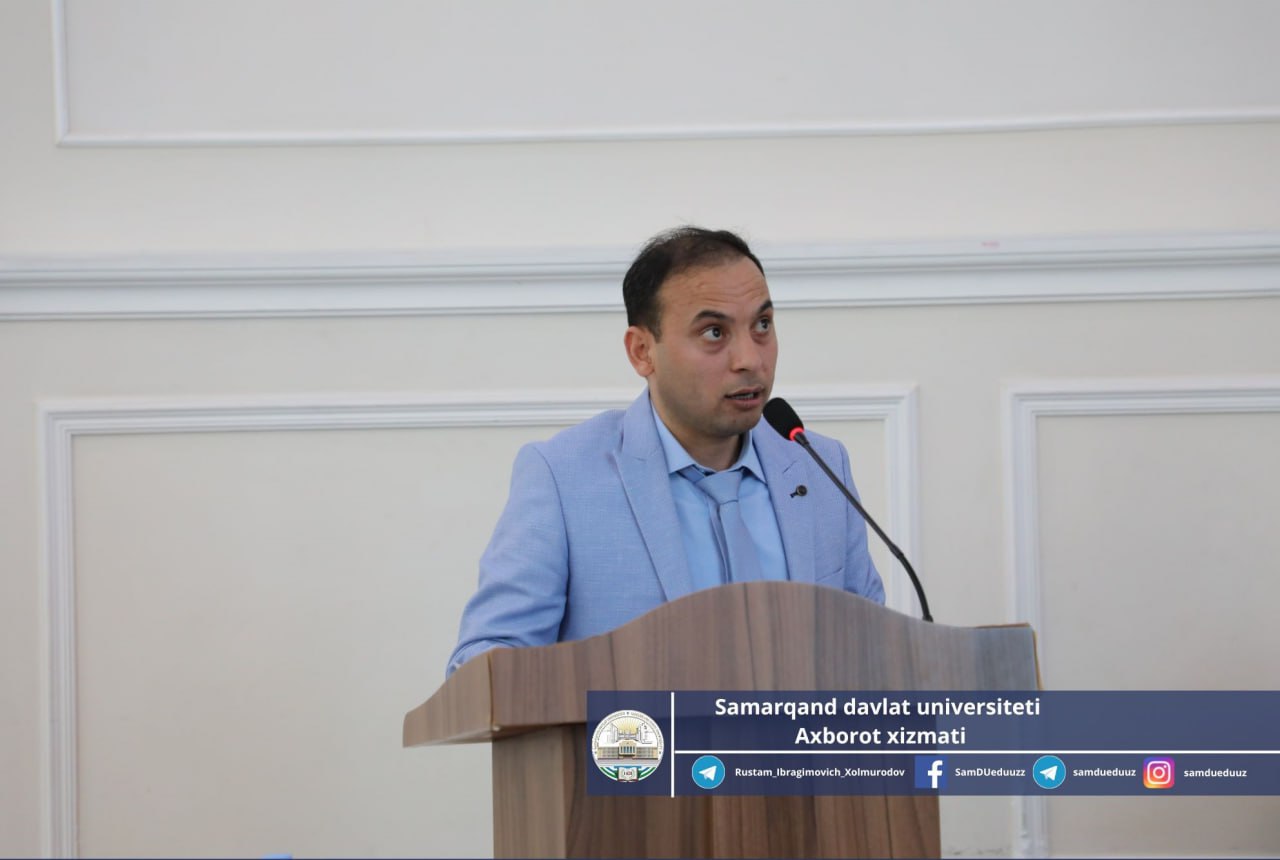“The Old Turkic language is the eternal point of connection of the common past and strong historical roots for the entire Turkic world…”

Interview with Bairam Bilir, researcher at the Department of Uzbek Linguistics, Samarkand State University
- How was your activity at Samarkand State University?
- I have always been attracted by staying in the countries of Central Asia. I used to work at the Kyrgyz-Turkish Manas University in Kyrgyzstan. I had to return to Turkey due to the pandemic. Then I continued my scientific work as a researcher at Usak University. In the meantime, I met Zhuliboy Eltazarov. It was then that the idea of studying for a doctoral degree and supporting scientific work in the universities of Uzbekistan was born. Ever since my student years, I wanted to study the ancient Turkic languages. But since there is no specialist in this field at Ushak University, I was working on a doctoral dissertation on a different topic. When I told the teachers about my intention, they approved with great interest and helped me enter Samarkand State University. Thus, in November 2020, I applied and was accepted to the doctoral program. In March 2021, I arrived at Samarkand State University and began my scientific research on the topic "Differences in the transcription of the Urhun script and their causes."
- What scientific sources did you use in your scientific work?
- Scientists such as V. Thomson, P. Melioransky, V. Radlov, S. Malov, Gani Abdurakhmonov, Kosimjon Sodikov, Usmon Sanakulov, who made a great contribution to the transcription of Urkhun-Enasoy's works, conducted scientific research on this topic. Despite this great study, there are still some problems with reading and transcribing some of the sounds. I tried to find a solution to such problems in my research.
- What is the main scientific novelty of the work?
- The progenitor language of all Turkic peoples is the ancient Turkic language. This is the eternal point of connection of a single and common past and strong historical roots of the peoples of the entire Turkic world. Its study is an important step towards the friendship and solidarity of peoples.
For all languages, each sign and even stress should be developed on the basis of the transcription proposed by the International Phonetic Association of England. This helps to facilitate the study and understanding of written sources that have survived for several centuries. In this regard, it would not be a mistake to say that we have revised the transcriptions of the Orhun-Enasoi inscriptions and analyzed the reasons for the discrepancies. After the establishment of the Research Institute of Turkic Studies of Samarkand State University in April 2022, I started teaching Turkish to students at the language center opened at the institute. I currently have over 30 students. About 10 students have received levels B2, C1 in Turkish.
Unfortunately, the theme of the ancient Turkic language is very little used in Uzbekistan. It's been 2 years since I arrived, and in that time I've seen only 2 researchers defending a scientific paper on this topic. Compared to the total number of protected scientific papers in the field of philology today, this is not even 1 percent. However, there are very large and important topics in this area.
It should be noted that I also saw some good moments in the process of defending the main doctoral dissertation. For example, the tasks of the abstract. This is not the case in Turkey or in European countries. But I think that the abstract is very useful for the supervisor to check and control the work. Checking each change made from the dissertation text requires additional time and effort. The abstract greatly simplifies this process.
- What are your plans for the future?
- As I said above, I have to continue working on my dissertation at Usak University. After completing this study, I intend to pursue my Doctor of Science (DSc) degree in Uzbekistan.
- How do you assess the place of Samarkand State University in the results achieved to date?
- First of all, thanks to the hard work and support of Samarkand State University, I managed to successfully pass the defense. For this I would like to express my sincere gratitude to the Rector of the University Rustam Khalmuradov, Vice-Rector for Research and Innovation Khakim Khushvaktov, professors and teachers of the Faculty of Philology, in particular Professor Muslihiddin Mukhiddinov, my supervisor Zhuliboy Eltazarov, Dean of the Faculty Azamat Pardaev.





Interview by Iroda BEKMURODOVA,
an employee of the Information
Service of Samarkand State University.
The photographs were taken by Shavkat AKRAMOV.

